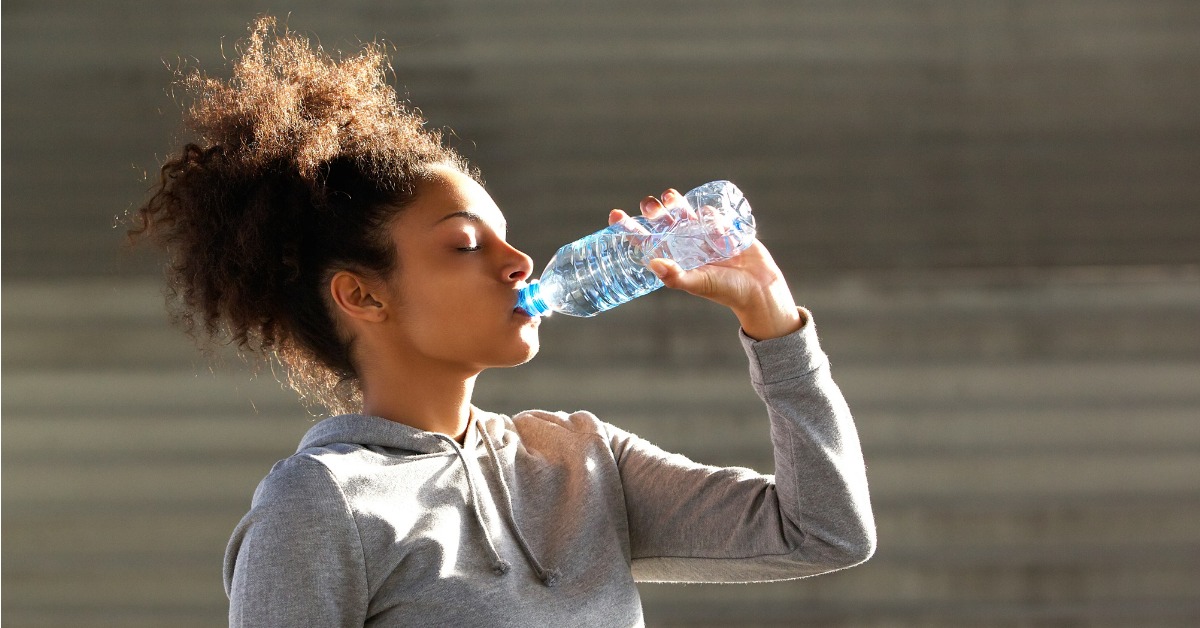Serving the Lowcountry and Coastal Empire of Georgia and South Carolina.
Wednesday, July 25, 2018


Chances are that if you live in Coastal Empire and Lowcountry region, you're no stranger to dehydration. You know what it’s like for your tongue to feel parched, your throat dry and scratchy, and feeling desperate for a glass of water.
It’s easy to feel that way during the summer when you’re out enjoying the sunshine, as dehydration can quickly spring upon any unprepared person. That’s a problem worth tackling.
“Up to 75% of the American population experience dehydration on a daily basis,” SouthCoast Health’s Dr. Leland Dampier stated. “We don’t realize our bodies need water until we aren’t feeling well. But staying hydrated is an easy goal to accomplish. Once you understand the benefits of doing so, putting in the right amount of effort to stay that way becomes a habit.”
Just in time for these hot summer days, we’re discussing dehydration and its effects on your body. Keep reading to find out why you should always keep a bottle of water nearby.
What is Dehydration?
Dehydration happens when the amount of body fluids leaving the body exceeds the amount coming in.
We lose water through lots of different daily activities. Breathing, sweating, and bowel movements are a few examples. Since our bodies are continually adjusting to how much water we have in our system, if we’ve lost too much we become unbalanced. Another way to measure it is when our bodies have lost so much water we can’t function properly.
Dehydration is split into three levels: mild, moderate, and severe. The good news is you can treat mild and moderate with more water. However, severe dehydration might need immediate medical attention.
Symptoms of Dehydration
Here are the classic symptoms of mild or moderate dehydration:
If you’re craving a tall glass of soda, that’s a telling sign that you’re dehydrated. What your body needs most is water, not soda. So, kick that craving to the curb and grab your water bottle.
Here is what severe dehydration looks like:
Who’s at Risk for Dehydration?
Often, children and infants are the most prone to dehydration due to a lack of understanding their bodies’ needs. Also, kids are more likely to be outside running around and losing fluids. Parents should be strict about making sure their children drink water as often as possible.
Older adults are also more at risk. It becomes harder to preserve liquids as we grow older, and our ability to sense thirst also becomes hazy. Drinking more water is especially important for this group.
Those with chronic illnesses also need to be careful of their water intake. Some diseases make it much more difficult to retain water and some disorders make it easier to expel more body fluids. In addition, certain medications can have side effects of frequent urination, which can make it challenging to stay hydrated for those who are prescribed to them.
The last group is those who work or exercise outside. Make sure to take a bottle of water with you wherever you go if this is you.
How Can I Prevent Dehydration?
Your daily water intake depends on your weight and height for how much water you should be drinking a day. Shooting for 64 ounces a day is a great starting point.
However, here are a few instances where you’ll need to drink more water:
If you have concerns about you or your family’s hydration habits, feel free to give our office a call. Schedule an appointment with any medical profession on our team at 912-691-3600.
Whether you are looking for a primary care doctor or a pediatrician, or another medical specialist, SouthCoast Health has you covered with its wide range of world-class healthcare services, available throughout the Coastal Empire and Lowcountry. SouthCoast Health has 120 physicians and medical professionals in 16 locations in Savannah, Richmond Hill, Pooler, Rincon, Baxley, Hilton Head, Hinesville, and Statesboro. SouthCoast Health offers comprehensive medical services including: Family Medicine, Internal Medicine, Pediatrics, Allergy and Asthma, Cardiology, Endocrinology, Eye Care, Imaging, Infectious Diseases, Nephrology, Neurology, Physical Therapy, Podiatry, Surgery, Clinical Trial Research Studies, Diabetic Self-Management Training Sessions, Dietetic Counseling, Laboratory Services, Massage Therapy, Optical Shop, Pharmacy, and Urgent Care.